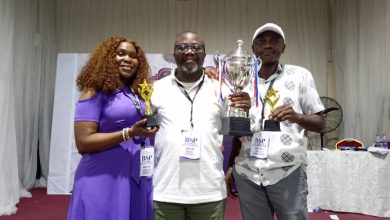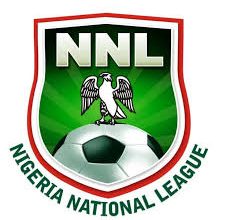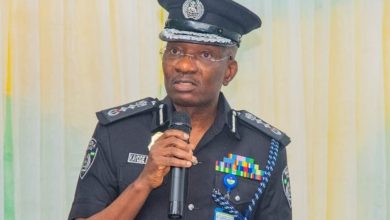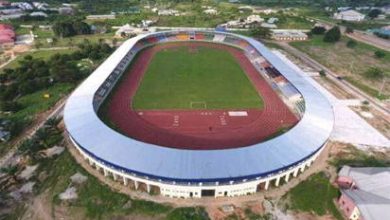U.S. Commercial Service, AfDB, and American Business Council Host Discover AfDB Workshop on Digital Investments in Nigeria
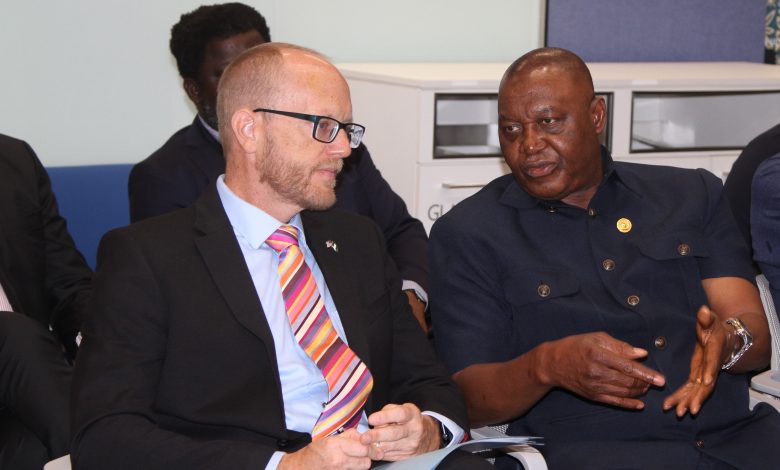
On Tuesday, October 29, the U.S. government, through the U.S. Commercial Service Liaison Office to the African Development Bank (AfDB) and U.S. Commercial Service in Nigeria, in partnership with the American Business Council and the AfDB’s Nigeria Country Department, hosted the Discover AfDB workshop, focusing on the Bank’s recent investments in the digital space.
This event, held at Microsoft’s Lagos office, convened over 70 U.S. companies operating in Nigeria. This marks the second time the Discover AfDB series is held in Lagos, as part of a broader initiative to expand private sector outreach on behalf of the U.S. Commercial Liaison Office to the AfDB. The Discover AfDB event, moderated by Elvire Kodio, U.S. Department of Commerce’s Associate Liaison to the AfDB, aims to demystify the Bank and highlight upcoming business opportunities for U.S. companies.
Aligned with the African Union’s Digital Transformation Strategy, the U.S. government, through the Digital Transformation with Africa (DTA) initiative, is dedicated to expanding digital access and creating supportive environments across Africa. The AfDB’s investment in the digital economy in Nigeria, the largest economy in West Africa, served as a focal point for the event. The growth of Nigeria’s digital ecosystem offers tremendous opportunities to spur economic growth, promote inclusivity, and create jobs.
Africa’s digital transformation has opened new markets for U.S. exports and services, strengthened partnerships between African governments, the U.S. private sector, and the African diaspora. The United States is poised to be Africa’s partner of choice in the digital economy and beyond.
Welcoming participants to the event, Will Stevens, U.S. Consul General in Lagos, noted, “The African Development Bank plays a crucial role in facilitating digital transformation across the continent and particularly here in Nigeria. For U.S. companies, this presents a unique opportunity to collaborate with the AfDB, bringing expertise, technology, and innovation to Nigeria’s burgeoning digital landscape.”
As the largest non-regional shareholder of the African Development Bank, the United States continues to strengthen its engagement with the AfDB. The Bank currently oversees over 50 operations in Nigeria. Abdul Kamara, Director General of the AfDB for Nigeria, outlined the Bank’s key initiatives in digital infrastructure designed to support the nation’s economic and social development.
In his keynote address, Dr. Abdul Kamara, the Bank’s Director General for the Nigeria Office underscored that, “In Nigeria, and many other African countries, the huge digital infrastructure deficit poses a major constraint to development. The African Development Bank sees digital connectivity as an enabler of growth and therefore understands the urgent need to enhance the digital infrastructure access and connectivity on the continent. This reiterated the level importance that the Bank attaches to events such as this one, which seek to close the digital infrastructure gap on the continent and welcomed the Bank’s heightened partnership with U.S. investors in this space.”
The keynote speech was followed by presentations of three flagship projects, the AfDB’s procurement framework, and its non-sovereign operations. The presenters included Dennis Ansah, Lead for Non-sovereign Operations; Rosemond Offei-Awuku, Chief Development Economist; and David Engwau, Senior Procurement Specialist. A Q&A period and a networking reception provided a platform for dialogue between the Bank and U.S. private sector.
The U.S. Commercial Liaison Office to the AfDB will continue its Discover AfDB series as part of its strategy to engage more U.S. firms in doing business with the African Development Bank.


